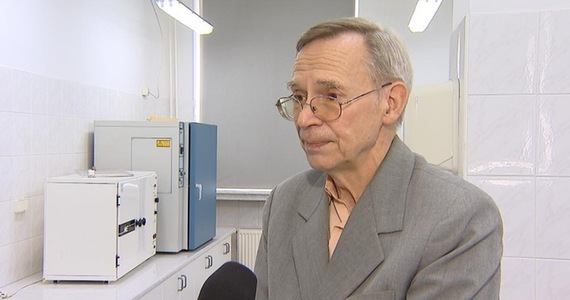The problem comes back
If psychological suffering is the result of a disease that we identify based on symptoms, then the treatment is its elimination. The problem is that what we see as symptoms of illness are often a very logical consequence of living in the world that represents the daily life of the person suffering. In such a situation, after completing treatment, clients leave the office with a certain set of new experiences and skills, but after some time it turns out that the problem appears from a completely different side. Other times, improvement occurs apace and in a way completely unexpected by the protocol. What changed to make our condition improve significantly?
Zosia was diagnosed with panic disorder, and Marek was diagnosed with depression.
Zosia has finished treatment and is satisfied that she has been able to reduce the number and severity of her crippling anxiety attacks, but her life is still guided by thoughts and emotions to which Zosia attaches great importance and she feels that there is a part of her life that still needs her. Missing. It is difficult to name this experience, so Zosia does not tell the therapist about it. After all, she has recovered from anxiety disorders and achieved success.
Marek discovers beliefs that do not serve him and learns to verify them. After two years, he completed treatment, aware of his cognitive distortions and strengthened by the experience of a stable and friendly relationship with the therapist. In fact, he no longer shows symptoms of depression. He left the office after the last session, satisfied, but still not knowing what was really important to him. The answers that were supposed to come had not yet come, and after some time Marek noticed his depressed mood again. More and more thoughts appear that do not give him peace.
When we stop clinging to what we already know
We live in a time when science has helped save billions of human lives and we have compelling evidence of this – the number of deaths in neonatal wards or from infectious diseases has been reduced to a minimum over the past 100 years, whether eliminated or significantly eliminated. Reduce it by introducing vaccinations. Clearly we are not good at dealing with psychological disorders.
Despite the development of therapeutic schools and pharmacology, successes in treating and preventing mood and anxiety disorders are minimal. Worse still, the number of diagnoses is increasing. We can smugly assume that this is a result of increasingly improved public awareness and ability to access professional help, but this complacency is shattered when we look at the increase in the number of suicides over the past 20 years.
This does not mean that we should raise our hands and continue with what does not work. Science is a series of disasters that let us know we have to look elsewhere. Research teams around the world are trying to understand the mechanisms of different diseases, and when they finally come close to understanding how a disease occurs, they search for a cure. Perhaps by classifying symptoms and searching for treatments, psychotherapy as a science has reached a dead end.
Then what to do?
Professors S. Hoffman and S. Hayes asked themselves a bold question: What actually works for the client in the treatments currently available? The first succeeded in cognitive behavioral therapy, and the second – one of the creators of ACT (acceptance and commitment-based behavioral therapy) went beyond their own fields and decided not to look at what fits their theory best, but to start all over again. They put aside their past accomplishments (defusion), opened themselves to the feelings arising from reality (acceptance) as it is (mindfulness) and sat down with a blank piece of paper (commitment) to pursue what is important to them (values). . They did not create a new school of therapy, but they created a model that could integrate different approaches, which they describe in the book “Process-Based Psychotherapy.” The name “cognitive-behavioural” has disappeared from the name of their work. The value of caring for the well-being of those who are suffering turns out to be stronger than the inertia and perception once defined as “seeking in a certain direction.”
This is an example of psychological resilience, one of the broad processes that leads to necessary changes and enhances mental health. When we stop clinging to what we already know and start paying attention to what reality actually has to offer and are willing to accept the information given to us as it is, we can make choices that lead us towards the life we want to live. Of course, we first have to know what life actually is.
Behaviors that lead to suffering
At first glance, they seem quite rational. It may even provide benefits in the short term, but it does not work in the long term. If something doesn't work, there is a small possibility that even if nothing changes, this strategy will eventually become profitable. Perhaps external circumstances will change. Let's look at Mark – when he is on vacation, his problems seem to decrease. Does this mean you no longer suffer from depression while on vacation? If I had the flu, I had it in my apartment and on my grandparents' plot. How can Zosia start having fewer anxiety attacks when she comes to her hometown?
Removal of the disease must consist of providing the missing element, killing the virus, or mechanical intervention in the affected structure (surgery). If we assume that the occurrence of suffering is not affected by illness or its absence, but by a combination of various factors, the room for maneuver expands significantly. We cease to be sick persons in need of treatment, and become individual, active entities embedded in a specific context and changing according to circumstances.
As long as this contrast is maintained, the river of our life flows quickly. However, sometimes rigidity comes our way. Something that does not serve us at all. “Why would I do this to myself again?” – We ask and start looking for help for ourselves. Sometimes that help comes as a diagnosis that says: You're sick, but don't worry, we'll treat you. This approach can remove the burden of guilt if someone blames themselves for the situation they find themselves in. At the same time, illness can become a sign that limits effectiveness. Stoicism's distinction between what is within our control and what is not is blurred by the idea that mental illness is something that simply happens to us.
Human suffering can be amplified through a complex, multidimensional network in which behaviors and strategies related to thinking, attention, motivation, emotions, and self-image are suspended on scaffolds composed of physiology and genetics on the one hand, and social and cultural norms. On the other hand, in which we live.
What these behaviors have in common is their apparent short-term rationality. Although we often view them as meaningless, they usually provide relief from suffering or are enjoyable in the short term. Its painful, long-term consequences are only felt in the long term. Here are a few of them:
Integration of ideas: Cognitive integration is dealing with ideas as if they were absolute truths. When you are stuck on a thought, it is difficult to imagine that it is possible to freely observe the thought and not identify with it. It is as if a person who was constantly immersed in water believed that the moisture he felt on his skin was an inherent part of him, and not just an element of the environment with which he was in constant contact. Then thought becomes matter. The opposite of integration is distancing yourself from your own thoughts. There is no need to change ideas or fight it if we do not treat it as a dangerous opponent.
Rumination: Indulging in thoughts about the past and future that occupy so much of our attention that we lose touch with what is actually happening here and now. It is often accompanied by the belief that it is a productive and effective technique – after all, I am “dealing” with my problem. In fact, no real action is taken towards a solution and the suffering worsens.
Disordered thinking: an automatic way of thinking that is difficult to detect on an ongoing basis. It is like dark glasses placed on the perception of the world, which gives everything a negative and discouraging color. It reduces motivation to work and self-esteem.
Avoid experiencing emotions: When we think an emotion is bad, that we can't handle it, or that we shouldn't feel it, we may start to avoid experiencing different experiences. What we avoid is usually associated with discomfort. For this reason, we get an immediate reward for this strategy – we do not feel uncomfortable. When this strategy becomes dominant, it begins to harden our actions, preventing us from doing things that may be generally beneficial to us, but involve discomfort.
Next Shame: Shame is a complex social emotion that tells us that there is something wrong with us and encourages us to hide because we cannot enter into relationships the way we are. It is coupled with many other difficult emotions, leading to low self-esteem and distorting our image of reality.
Follow up on loneliness: Although it happens to us every now and then and is a normal human emotion, when it becomes the dominant reaction to discomfort in relationships, it leads to social isolation, even when we are surrounded by friendly people.
Impulsiveness: If I use my desires as a guide, satisfying each impulse immediately seems like a great strategy. Then we do not feel discomfort for a long time. The problem with this strategy is that it makes it difficult to achieve goals that require dedication, methodology, or perseverance.
Rigid attention: Our attention must be flexible enough so that we can focus on what we are doing and at the same time switch to another object if it appears in the field of interest and is important to us. Sometimes we are so absorbed by thought, memory, imagination, or bodily sensation that there is no room for anything else.
Distributed attention: When attention changes its focus frequently, it is difficult to pursue long-term goals that require committed action for a long period of time.
Focus on the past and future rather than the present: When sitting on the beach during sunset with a loved one, we can focus our attention on what we are experiencing at that moment, getting lost in memories, or planning a bathroom renovation when we return. In this way, we miss out on what is really happening – by not paying attention to what is actually happening in a given moment, we cease to be present in our lives.
All of these behaviors are embedded in the culture and society in which we live. The social class, customs, history of our family and its position in society matter on many levels. Social beliefs and level of support, from the neighborhood level to the place on the map of global politics and economics.
Equally important is the biophysiological level, including gene expression, chronic disease, injury history, disability, diversity and abundance of diet, type and amount of physical activity, amount of daylight, and length and quality of sleep. Each of these dimensions is linked to other processes, causing them, enhancing their occurrence or weakening them.
Marek and Zosia, despite being diagnosed with depression and anxiety disorders, are primarily individuals immersed in the complex context of their lives. They need not only treatment for their symptoms, but a compassionate understanding of their suffering and a search for their strengths in order to help them achieve the goals and values that are important to them. Regardless of the type of psychotherapy they choose, it is important that this therapy deals not only with a set of symptoms, but with the human being as a complex and unique entity steeped in a specific context.

Echo Richards embodies a personality that is a delightful contradiction: a humble musicaholic who never brags about her expansive knowledge of both classic and contemporary tunes. Infuriatingly modest, one would never know from a mere conversation how deeply entrenched she is in the world of music. This passion seamlessly translates into her problem-solving skills, with Echo often drawing inspiration from melodies and rhythms. A voracious reader, she dives deep into literature, using stories to influence her own hardcore writing. Her spirited advocacy for alcohol isn’t about mere indulgence, but about celebrating life’s poignant moments.








